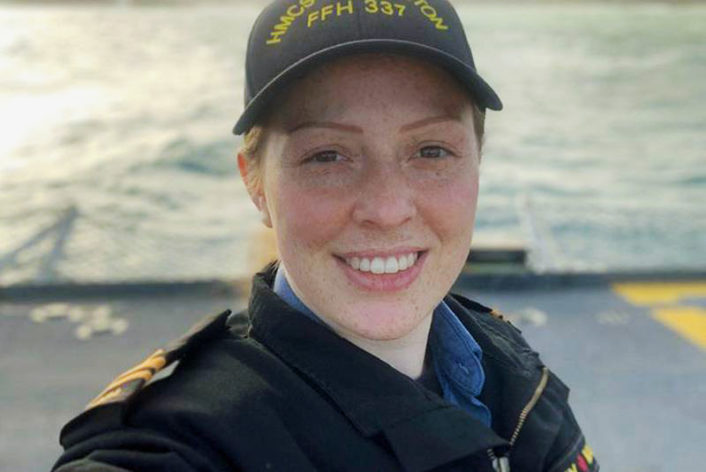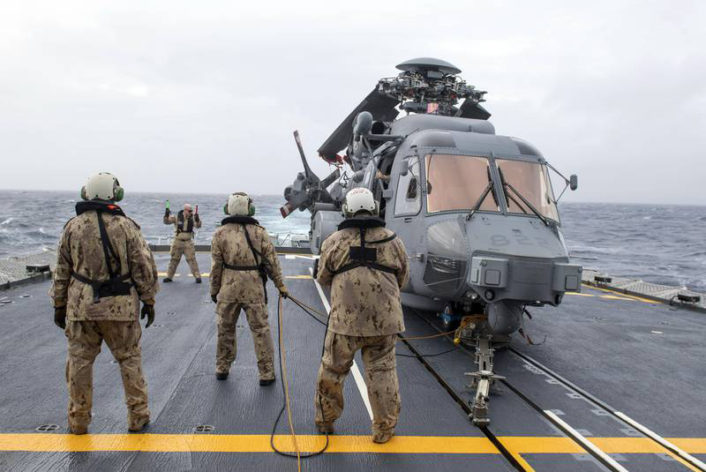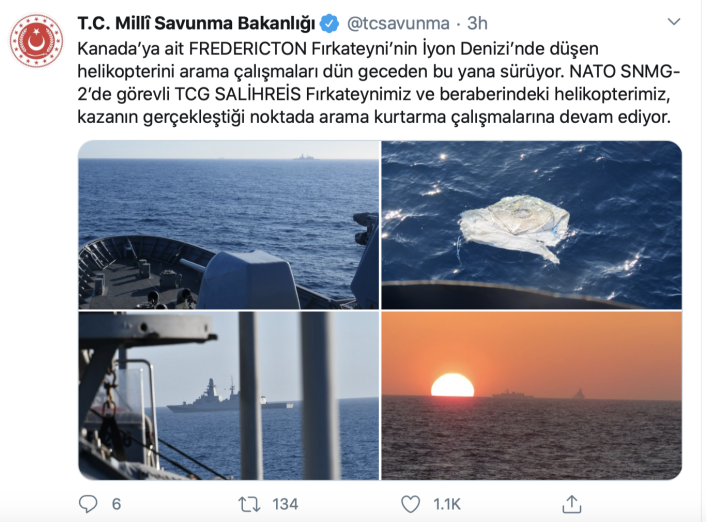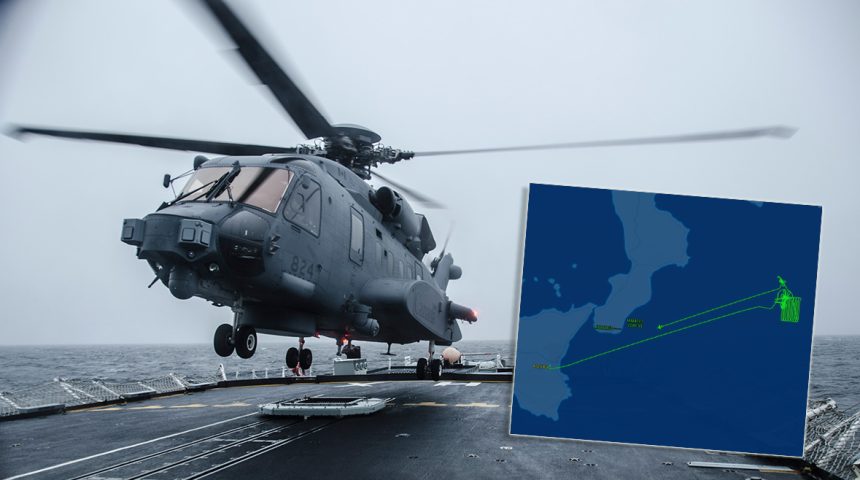Canadian CH-148 Cyclone Debris Field Found, Aircraft Went Down in Fair Weather.
One crewmember is dead and five are missing in the crash of a Royal Canadian Air Force Sikorsky CH-148 Cyclone multi-role helicopter in the Ionian Sea early on Thursday morning, April 30, 2020. A search and rescue effort is underway in the region to locate the missing five crewmembers. Flares were reported seen in the area according to a report by Canada’s Chronicle Herald.
The victim confirmed in the accident has been identified as 23-year old Sub-Lt. Abbigail Cowbrough, a marine systems engineering officer. Sub-Lt. Cowbrough was a graduate of the Royal Military College of Canada in 2018.

The report went on the say, “Defense Minister Harjit Sajjan said the cause of the crash is still unknown, but that the cockpit flight data and voice recorder have both been recovered and will be brought back to the National Research Council for analysis.”
Canadian Forces announced the CH-148 helicopter is now under an “operational pause” pending the outcome of the crash investigation.

The aircraft was from the Halifax-class Canadian frigate HMCS Fredericton. It was operating as part of Standing NATO Maritime Group 2 (SNMG2) The helicopter was flying missions in support of Operation Reassurance, the deployment of 915 Canadian Forces personnel to central and eastern Europe to conduct training, force readiness exercises and other NATO-related operations. The operation was set to last six months.
A spokesperson for the Canadian Forces told media in a brief statement that, “Contact was lost with the aircraft as it was participating in Allied exercises off the coast of Greece”.
Weather in the region at the time of the crash was mild, with low surface winds approximately 10 MPH and temperatures in the low 60’s Fahrenheit (18° C). The moon phase indicated 49% illumination under partly cloudy skies at the time the aircraft disappeared.
Reports from the region said that, “The helicopter crashed in international waters about 80 kilometers (49 miles) off the island of Cephalonia. An Italian and a Turkish frigate were reported to be taking part in the search and rescue operation, finding debris and one body.”
The area where the accident occurred is in the central Mediterranean Sea, between the Greek peninsula and the island nation of Malta in an area called the Ionian Sea.
An Italian Air Force P-72A Maritime Patrol Aircraft was dispatched from its homebase at Sigonella Air Base to carry a SAR (Search And Rescue) operation: the aircraft could be tracked online, disclosing one of the areas where the search is focusing.
Interesting: here’s the track of the @ItalianAirForce P-72A aircraft involved in the SAR mission launched after RCAF CH-148 crash. https://t.co/YHhC8hB4gH
— David Cenciotti (@cencio4) April 30, 2020
The Sikorsky CH-148 Cyclone helicopter is a multi-role utility helicopter that began service with the Canadian Forces in 2010 to replace their aging CH-124 Sea King helicopters. But the acquisition program of the CH-148 Cyclone by the Canadian Forces has not been without questions.
According to a June 23, 2014 report on the CBC News, noted journalist James Cudmore reported that, “The Conservative government has agreed to accept new helicopters to replace Canada’s 50-year-old fleet of Sea Kings even though they don’t meet a key requirement recommended for marine helicopters by Canada’s air safety investigator, CBC News has learned.”
In contrast to the previous media reports about the CH-148, Canadian Chief of the Defense Staff Gen. Jonathan Vance told reporters today, “It’s performed well, we have 9,000 hours.”

CBC News writer James Cudmore also wrote in his 2014 story that, “CBC News has learned the details of what the government has agreed to forego in order to conclude a long-awaited new deal with Sikorsky, and it includes a formerly mandatory safety measure: a 30-minute run-dry standard for its main gear box. The importance of the ability to fly for 30 minutes after a loss of lubrication in the main gear box was reinforced by an investigation into a deadly 2009 crash of a Sikorsky-built helicopter. The gearbox is a kind of linkage between the helicopters engines and its rotor system. It’s packed with lubricating oil that cools the gears and keeps power flowing to the rotors. If a helicopter loses oil in its main gearbox, the system will get too hot and either seize up or otherwise fail. That would lead to a loss of power in the rotor, forcing a helicopter from the sky. A helicopter that meets the run-dry standard can continue flying for 30 minutes even if there’s no oil in the main gear box — a critical feature for helicopters flying hundreds of kilometres out to sea.”
No official cause for today’s crash has been reported, and the accident will be under official investigation by Canadian and possibly other investigative agencies.









